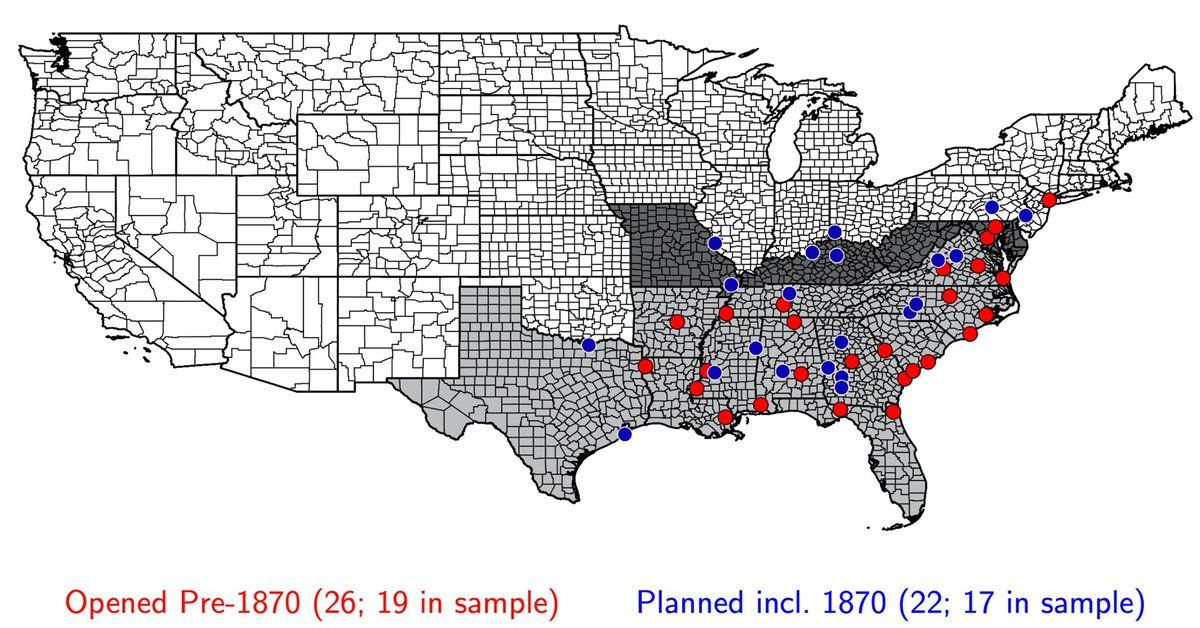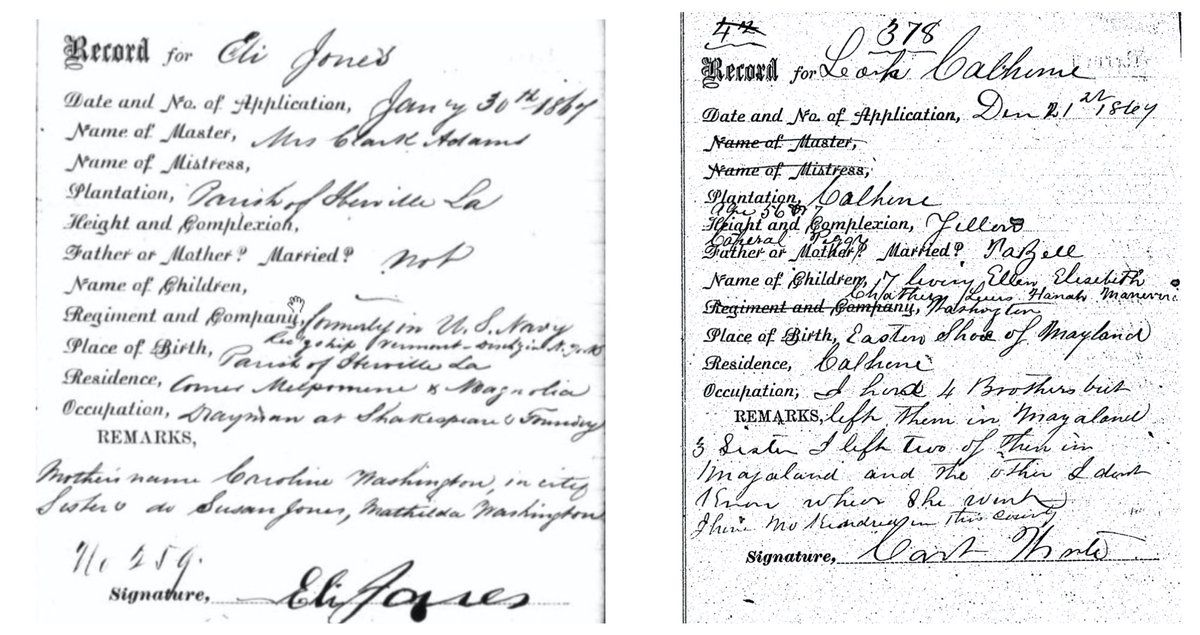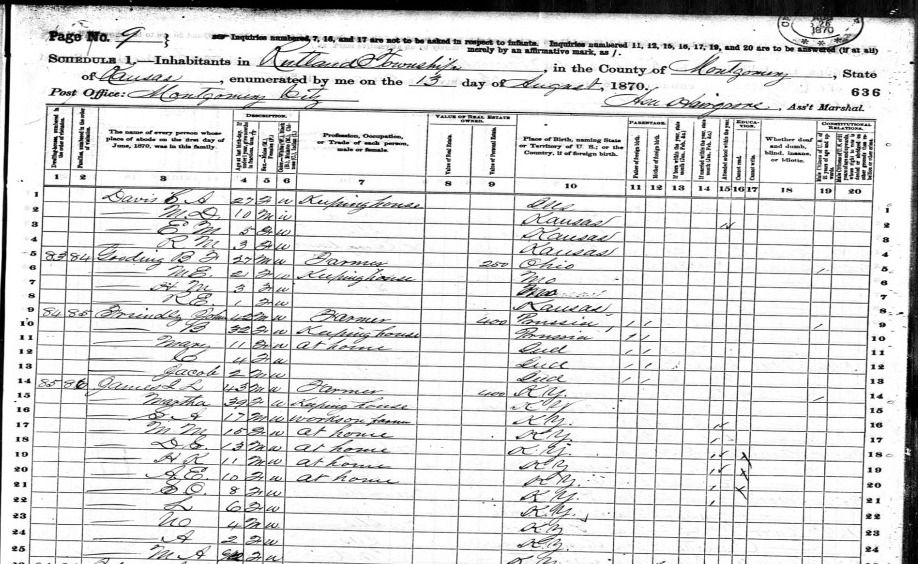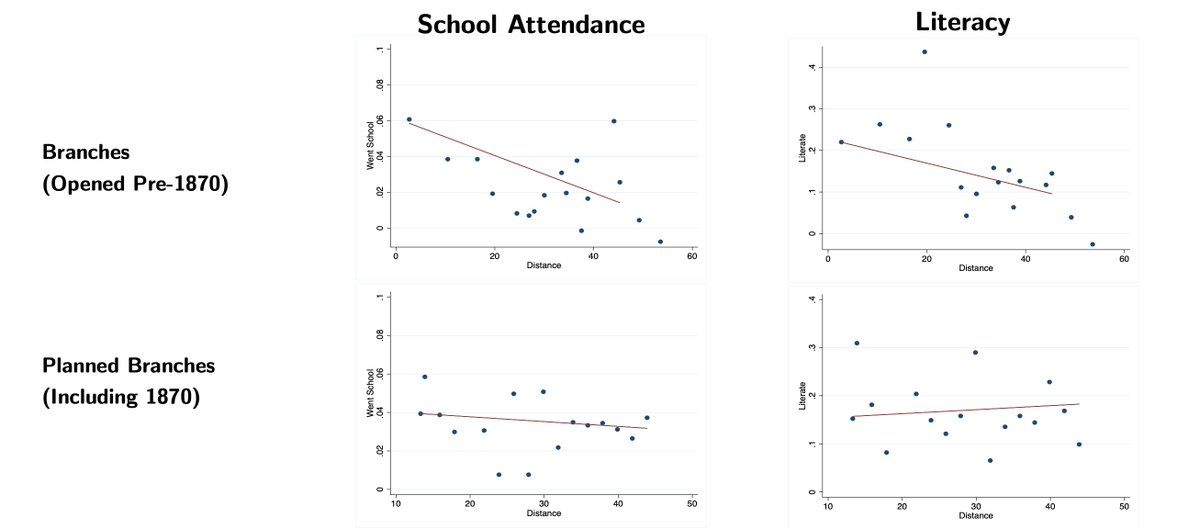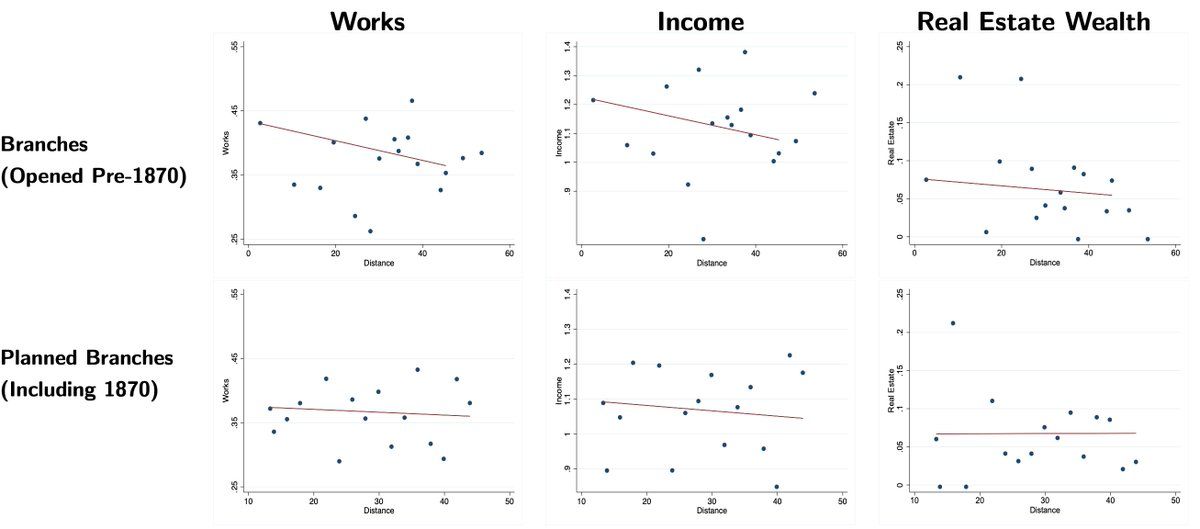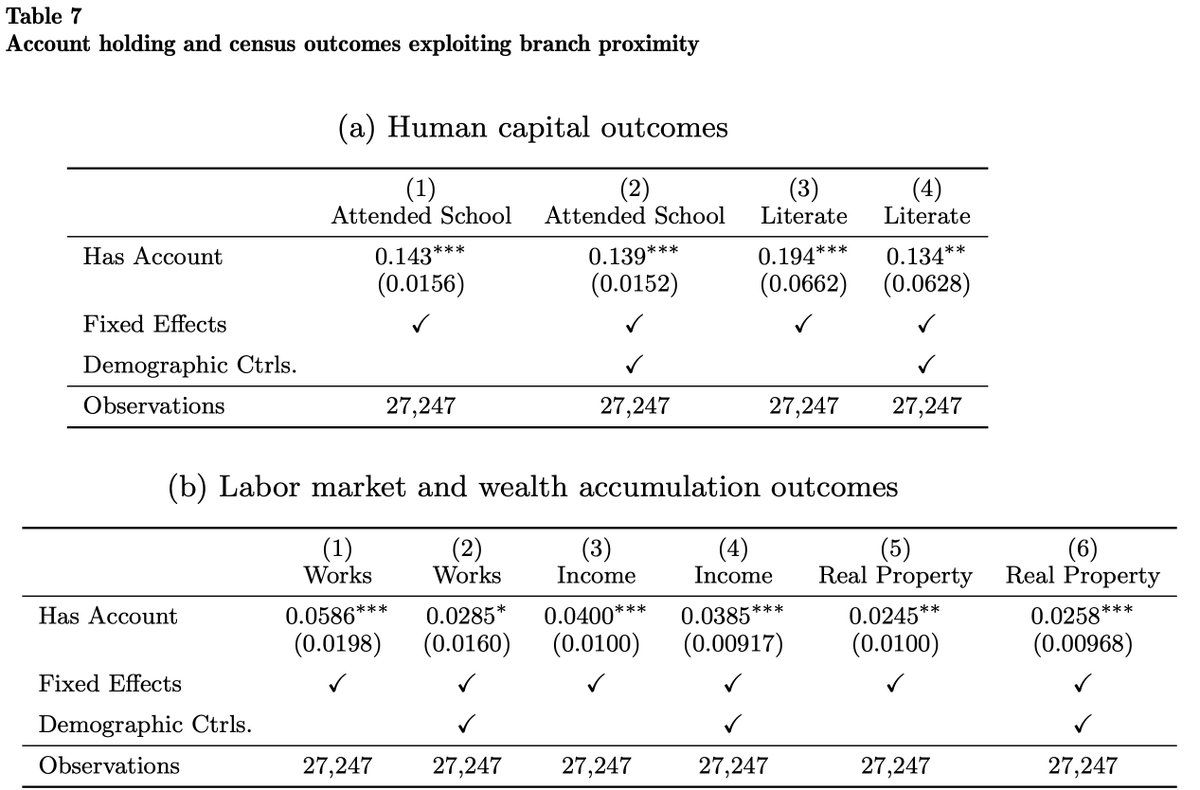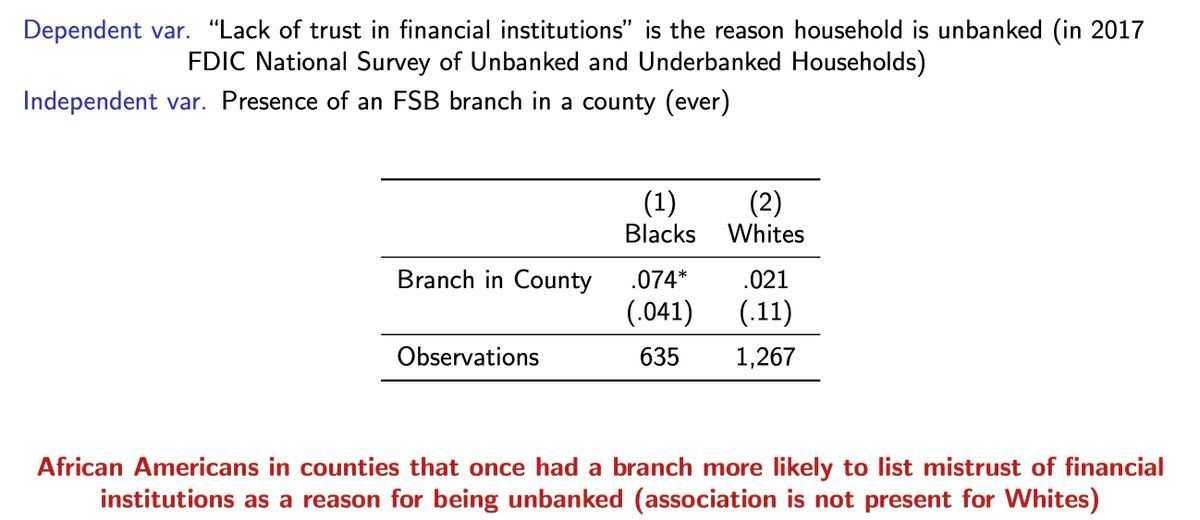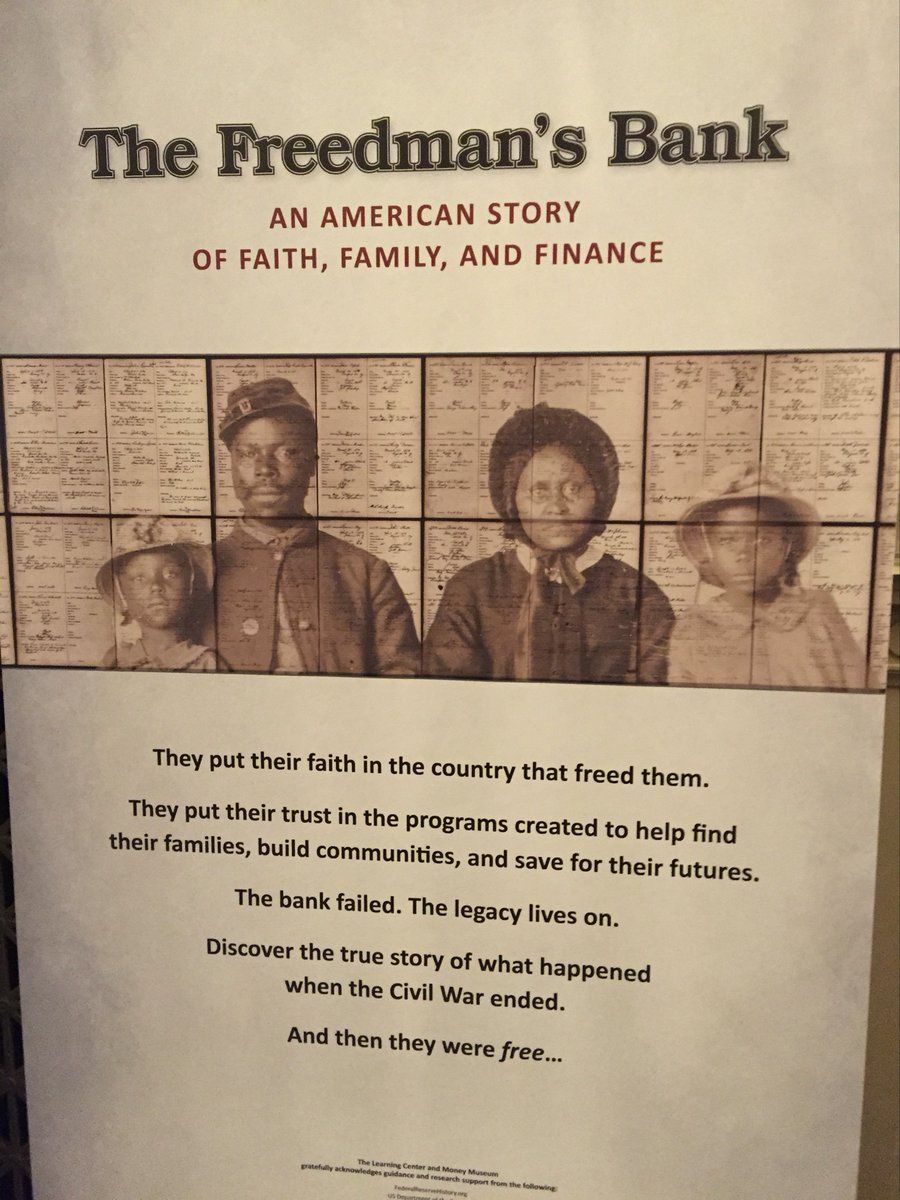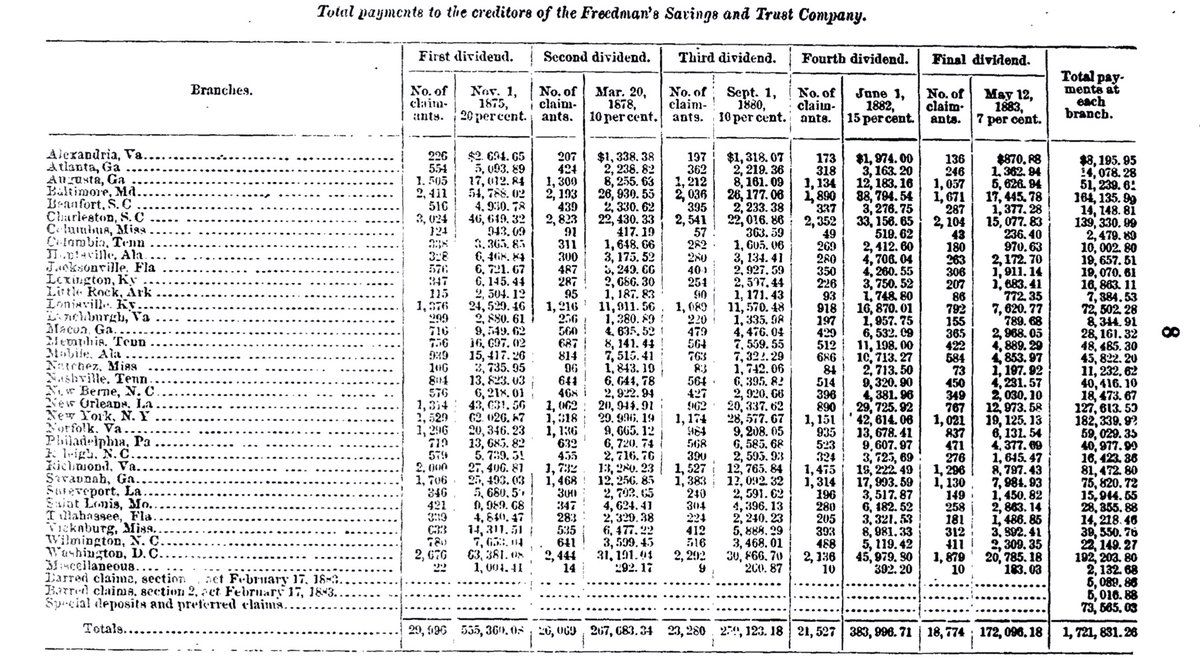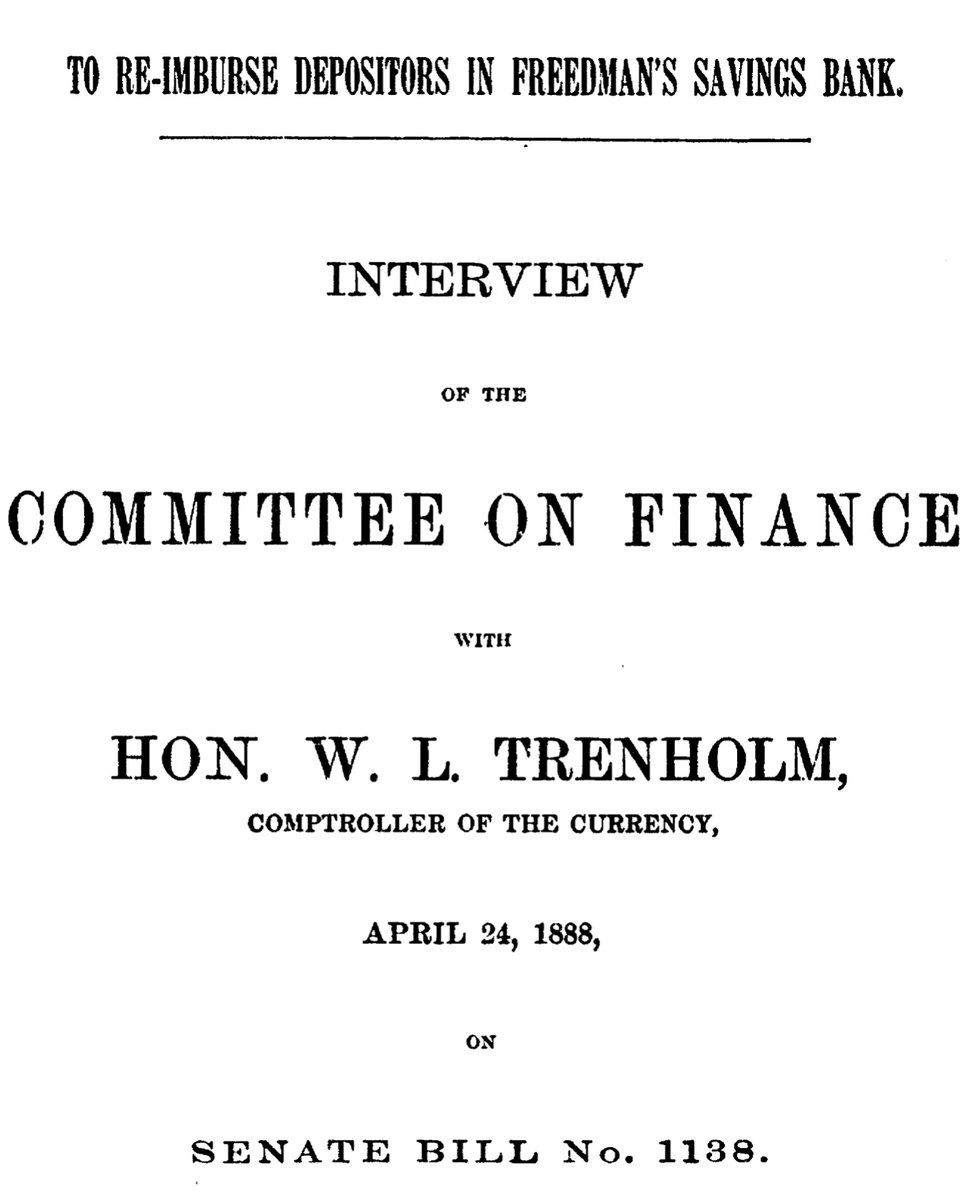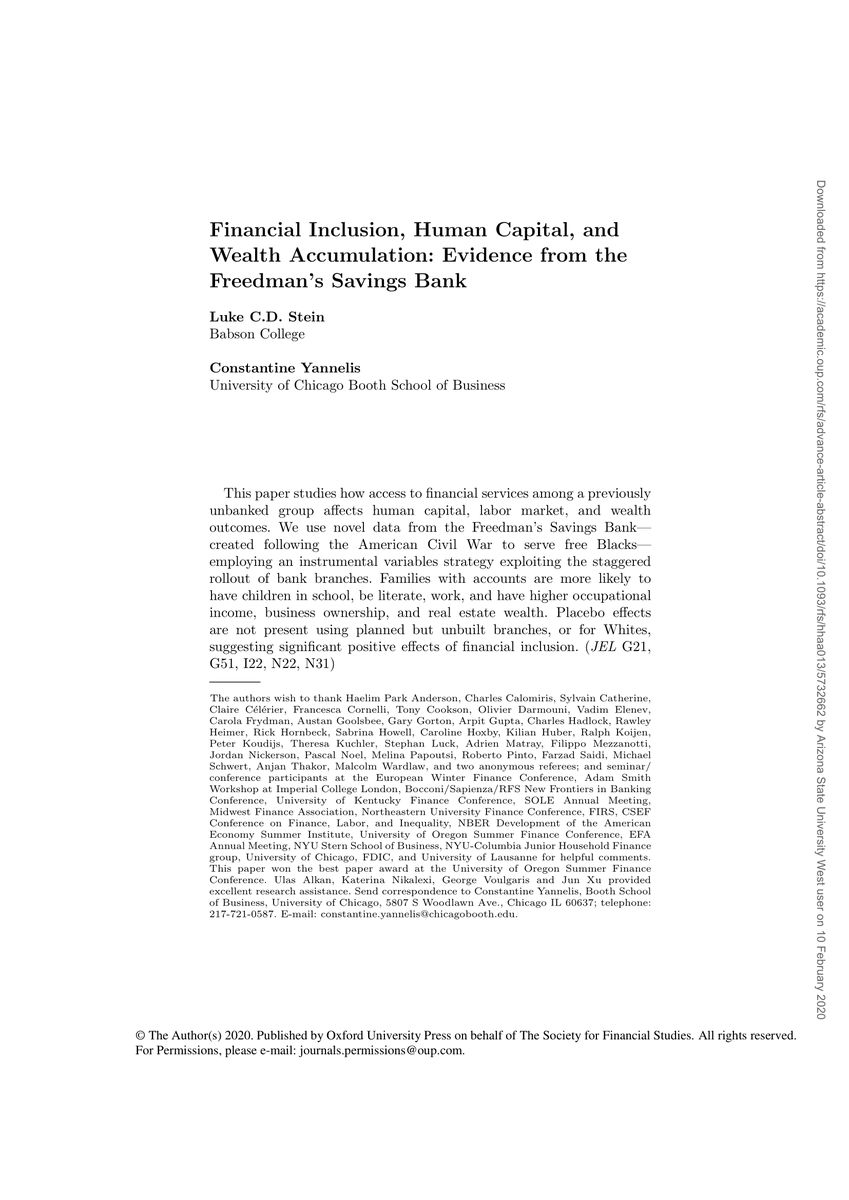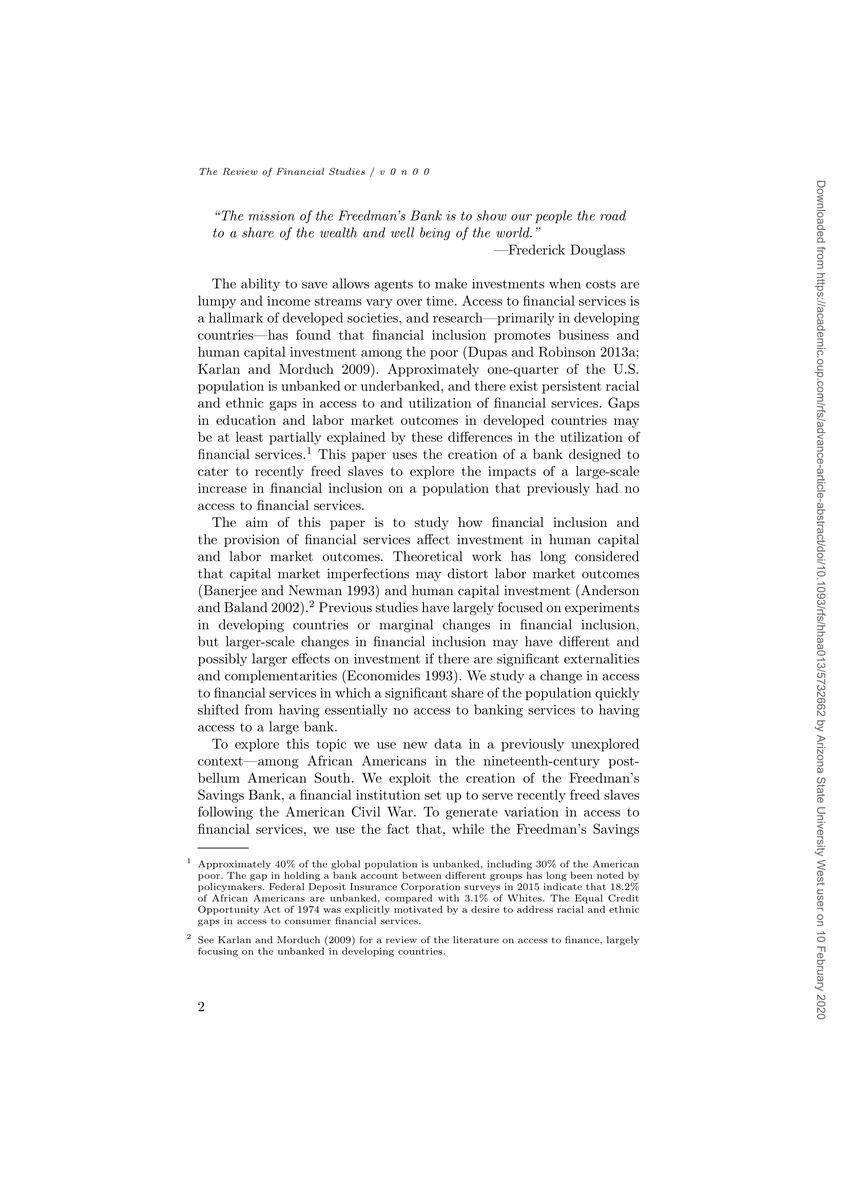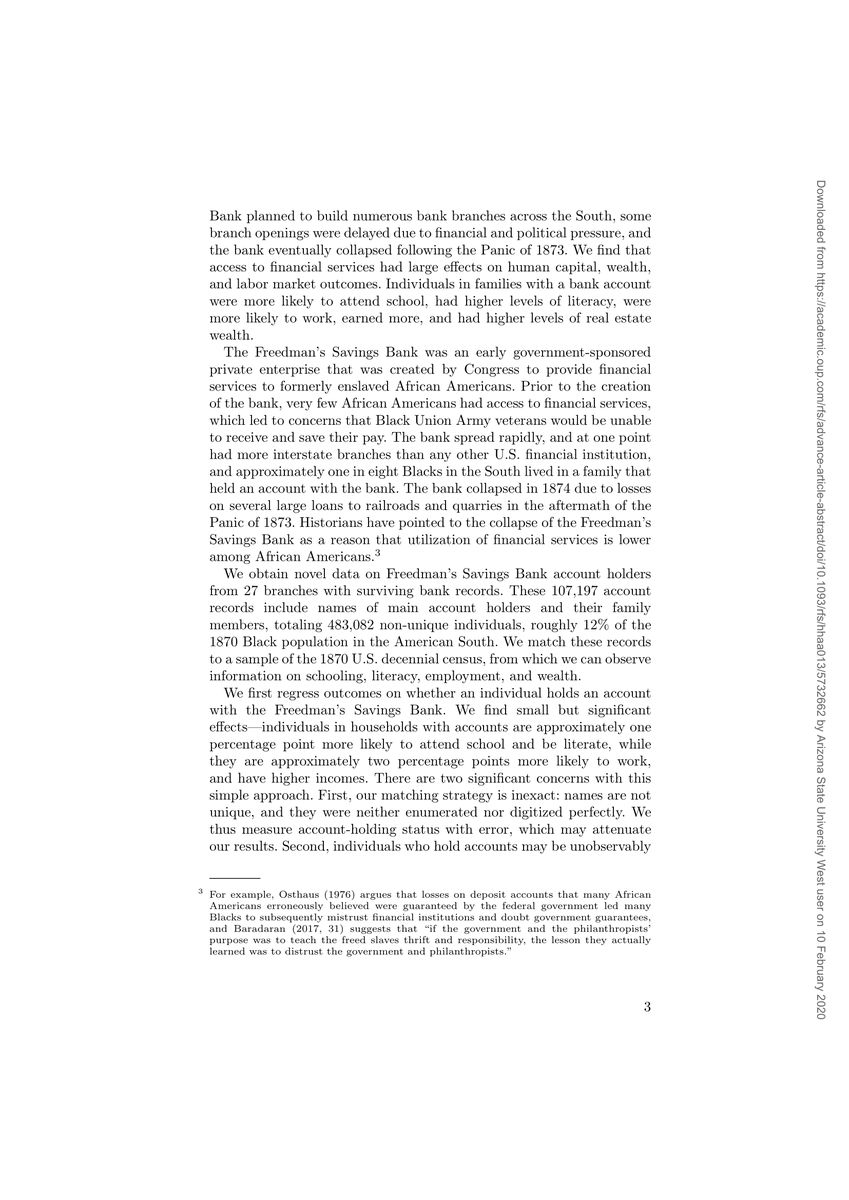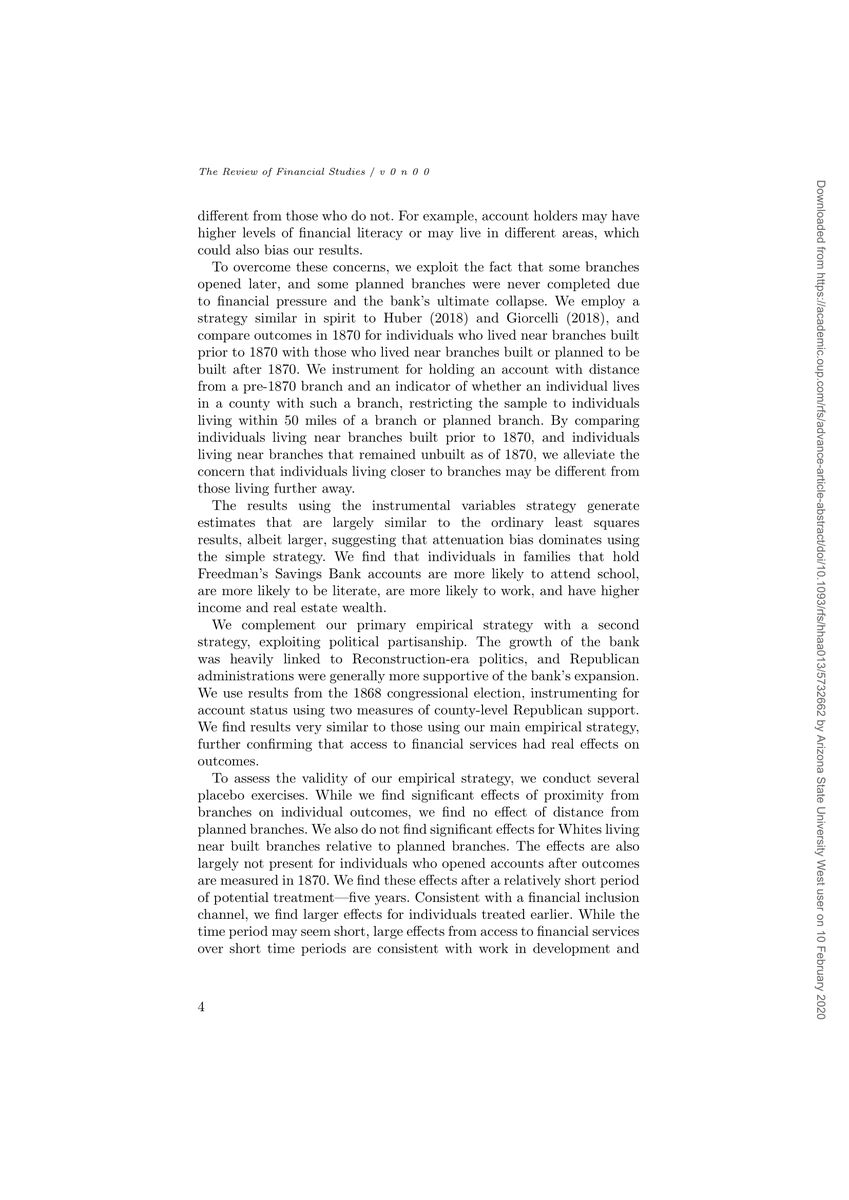-
I am absolutely thrilled that my paper on the Freedman’s Savings Bank is now up on the RFS website with their February (Black History Month!) “Accepted Manuscripts” release. A thread. 1/8 @RevOfFinStudies/1226884440330317824
-
The FSB opened 34 branches between 1865–70 to receive deposits “by or in behalf of persons heretofore held in slavery in the US, or their descendants.” By some measures it was the largest bank in the country, serving perhaps 1 in 8 African Americans. 2/ @smithsonianarch/828626813786193920
-
To understand 𝘴𝘩𝘰𝘳𝘵 𝘳𝘶𝘯 effects of access to banking, we use variation in 𝘄𝗵𝗲𝗻 branches opened (some early, some late, some planned but never opened) and 𝘄𝗵𝗲𝗿𝗲 people lived relative to a branch. Matched account opening records to 1870 Census data from @ipums. 3/
-
There’s a lot more in the paper, including an alternative instrumentation strategy that relies on variation in Republicans’ political strength as a determinant of branch location. 6/ @Aliceyjun/1226926834287247360
-
This all grew out of a conversation at a conference; Constantine had been visiting a Treasury building named after the Freedman Savings Bank (always @readtheplaque!) and remembered that back when we were in grad school together, I’d worked with related Census data. 7/
-
We got a ton of great input and feedback, from our first discussant (@farzado) to the RFS’s amazing copyediting team (@JoyceIppolito). Also, the peer review and editorial process was as efficient as I’ve ever seen in econ/finance. Thank you! 8/ @lukestein/1168929743204507648
-
PS [“director’s cut”]: Depositors’ losses during collapse weren’t just due to a generic banking panic; the FSB’s (white) directors seem to have invested bank funds in ventures run by their friends/family. Only some depositors got out in time👇 9/8 @lukestein/1227246612579176448
-
The FSB collapse occurred before deposit insurance, but there was a longstanding effort to secure government funds to reimburse depositors. To the (limited) degree these efforts were successful, this was a very early “bank bailout.”) 10/8 @lukestein/1227252116709752835
-
Focus of 𝘵𝘩𝘪𝘴 paper is really only short-run effects of the FSB (for various reasons), but we think the long-term, intergenerational effects are very interesting and important. I know Rick Hornbeck voices.uchicago.edu/richardhornbeck/ is also working on this. 11/8 @EconZach/1227248298857304072
 lukestein’s Twitter Archive—№ 5,883
lukestein’s Twitter Archive—№ 5,883